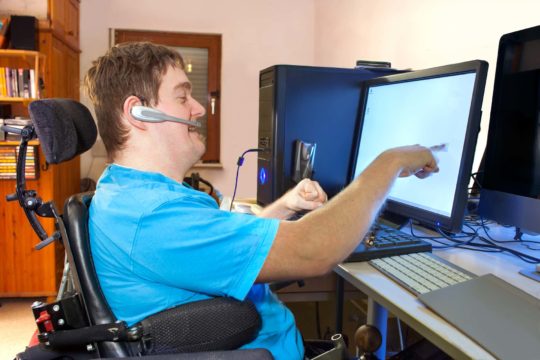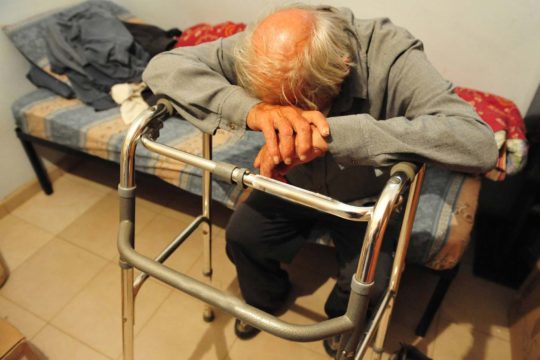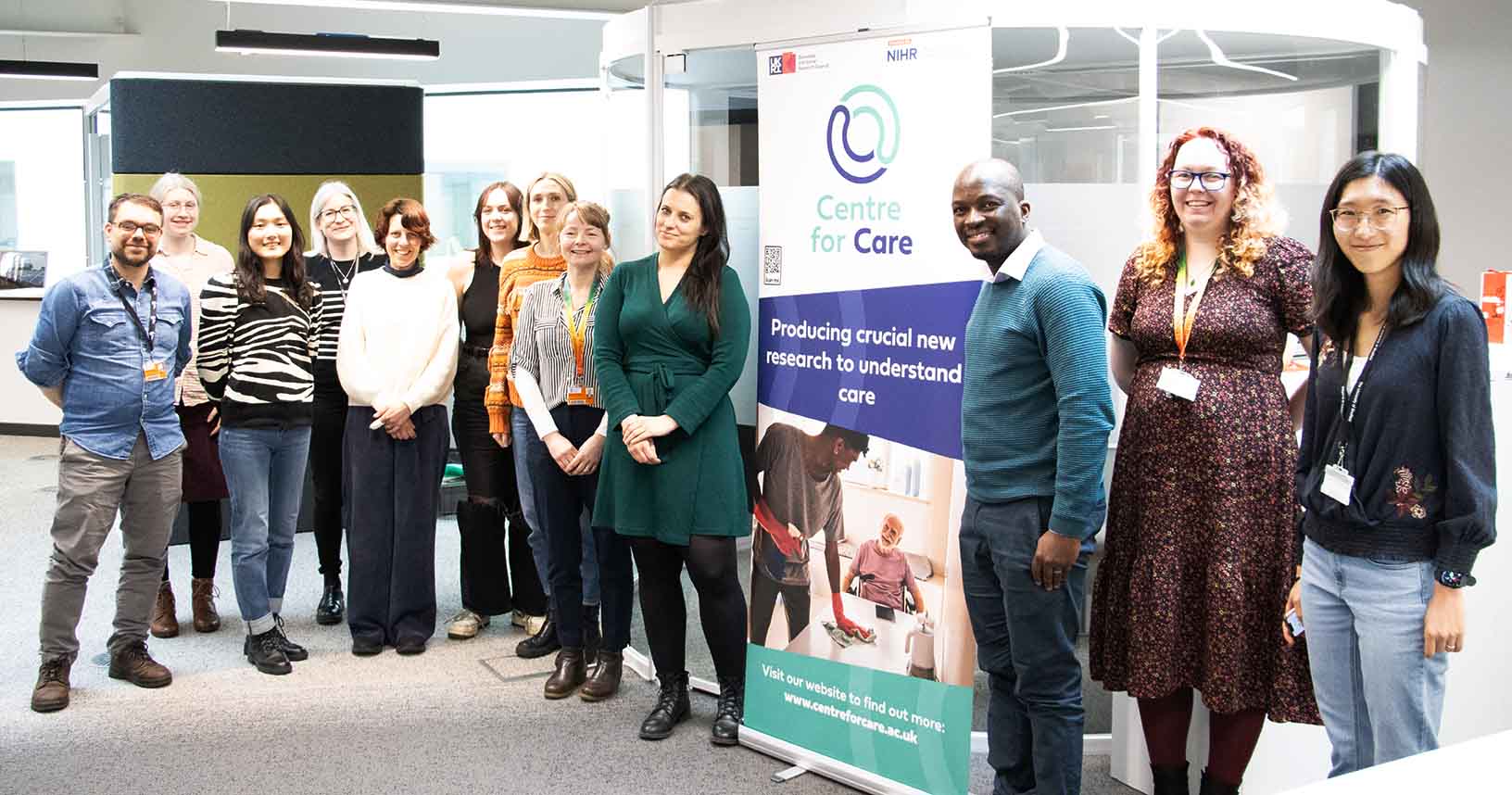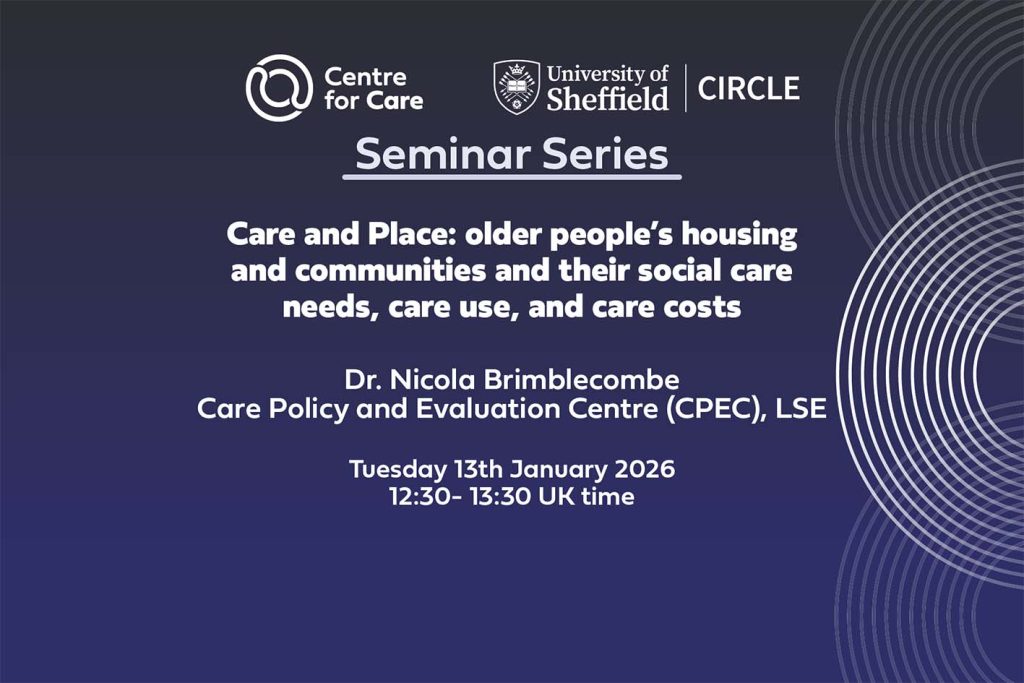
Care matters. It is a complex and important issue that affects everyone at some point in their life.
The Centre for Care provides accessible evidence on care to inform changes that could improve the lives of millions of people.
The Centre for Care links experts on care in 5 universities, 3 major charities and the UK’s Office for National Statistics.
Funded as an ESRC Research Centre to address the need for evidence on care that can make a difference, we have built a large research team to co-produce excellent research on care topics that really matter. We work closely with partner organisations in the care sector and people with direct experience of care.
Search our content
Keep up to date with our work
For regular updates from the Centre for Care team, follow us on Twitter @CentreForCare and enter your email address here to sign up for our newsletter.
Latest Updates
News and latest content from the Centre for Care
Robert Walker and PJ Annand explore how lived experience in care research is valued and recognised, and why this has led to a change in the Centre for Care’s payment policy.
Read More about Why we updated our co-production payment rates (and what it means): a shared reflectionWe are delighted to virtually welcome Professor Jerry Tew and Dr. Philip Kinghorn from the University of Birmingham, to present ‘Family and Group Conferencing for Adults – what it can offer for informal carers’ on Tuesday 27th January 2026.
Read More about Seminar: Family and Group Conferencing for Adults – what it can offer for informal carersSeminar recording now available! We welcomed Dr. Nicola Brimblecombe to present ‘Care and Place: older people’s housing and communities and their social care needs, care use, and care costs’ on Tuesday 13th January 2026.
Read More about Seminar: Care and Place: older people’s housing and communities and their social care needs, care use, and care costsIn this commentary Community Associates and Catherine Needham reflect on the process of working together, as we design and run a scoping project around the charges that disabled people in England pay towards non-residential care.
Read More about Social care charging – is it worth it?
Commentary
Our latest commentary pieces
Robert Walker and PJ Annand explore how lived experience in care research is valued and recognised, and why this has led to a change in the Centre for Care’s payment policy.
Read More about Why we updated our co-production payment rates (and what it means): a shared reflectionElla Monkcom writes about connecting with experienced researchers on a recent trip to Australia, providing her with conceptual and empirical insights which will impact her thesis.
Read More about Care, migration and social research in a new context: How my academic visit to Australia is shaping my thesisIn this commentary Community Associates and Catherine Needham reflect on the process of working together, as we design and run a scoping project around the charges that disabled people in England pay towards non-residential care.
Read More about Social care charging – is it worth it?Dr. Maxine Watkins and Dr. Louise Overton report on the first study to apply subjective notions of financial wellbeing directly to the experience of care and caring and with an emphasis on capturing and understanding changes in carers’ financial lives over time.
Read More about The life course costs of caring: Understanding unpaid carers’ financial wellbeing over time
Explore our cross-cutting Research Themes


Exploring how digital technology, care and caring relationships intersect and interact.
Read moreabout Digital Care: roles, risks, realities and rewards
Improving the social care data and analytical infrastructure.
Read moreabout Care Data InfrastructureExplore our Research Groups

Here we explore experiences of care at different life stages, when families are geographically dispersed and as people experience different parts of the care system.
Read moreabout Care Trajectories and Constraints
We use statistics and link data to study how socio-economic, health and other inequalities shape experiences of care for groups and individuals in different places and over time.
Read moreabout Inequalities in Care
We study change, innovation and challenges in paid care work: recruitment, organisation, conditions, digitalisation and their effects on job and service quality.
Read moreabout Care Workforce Change














